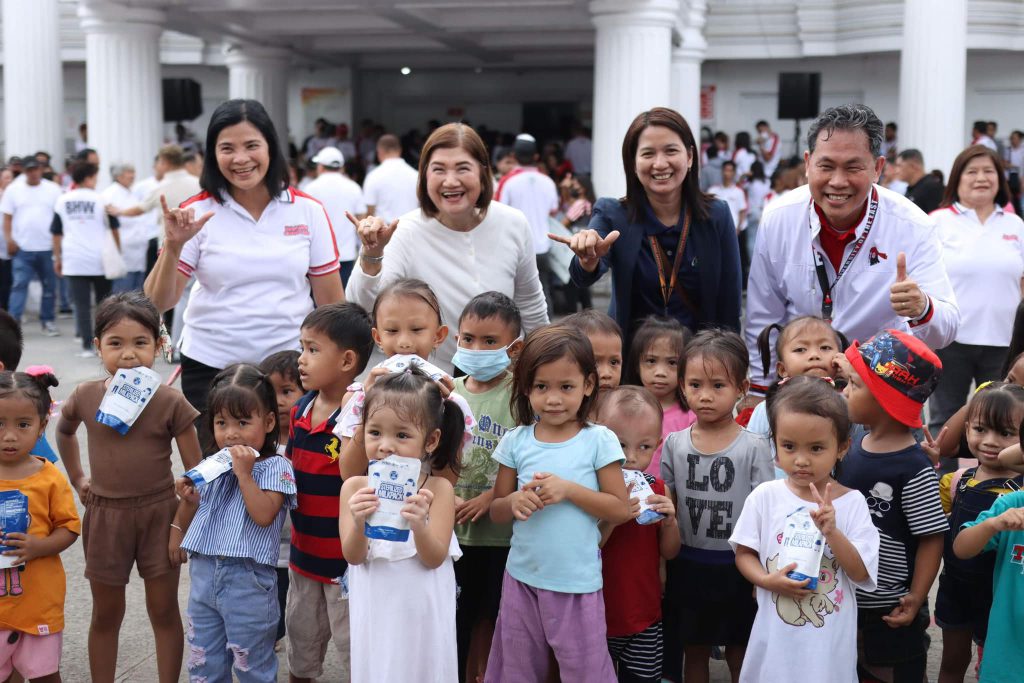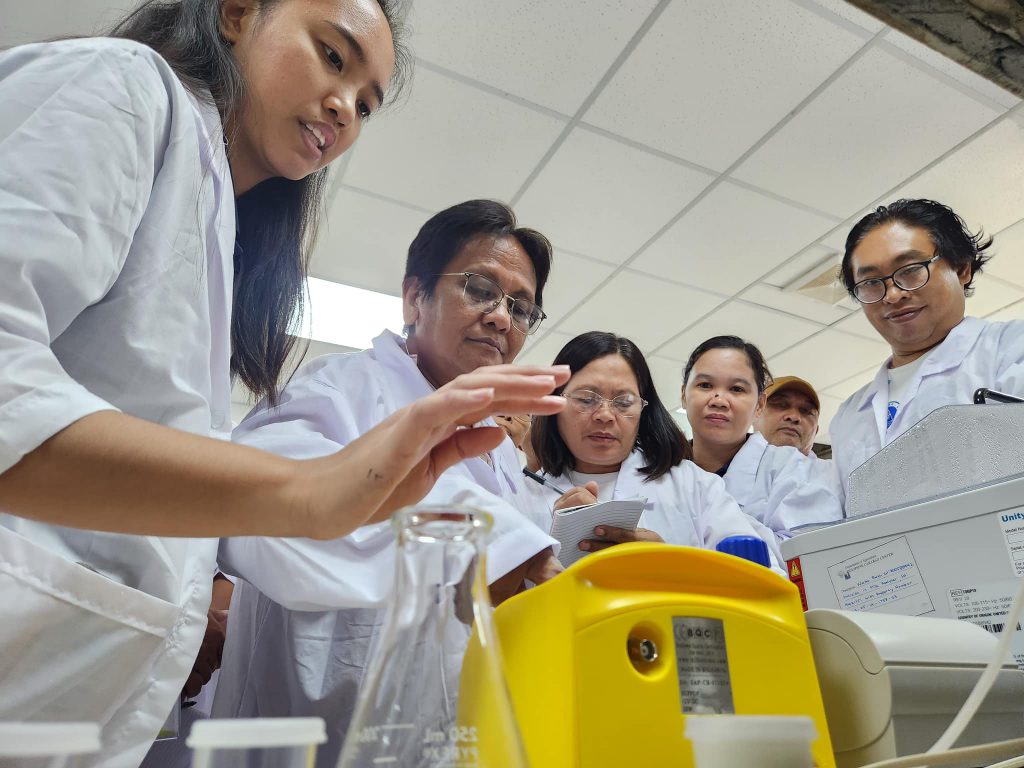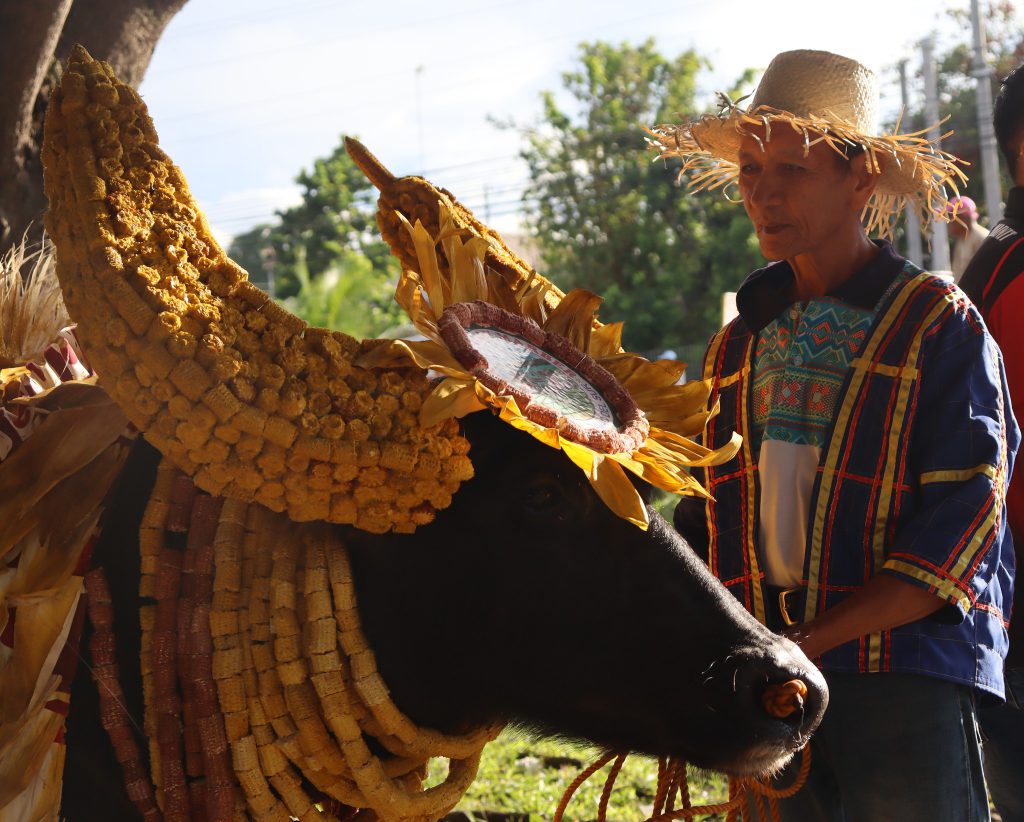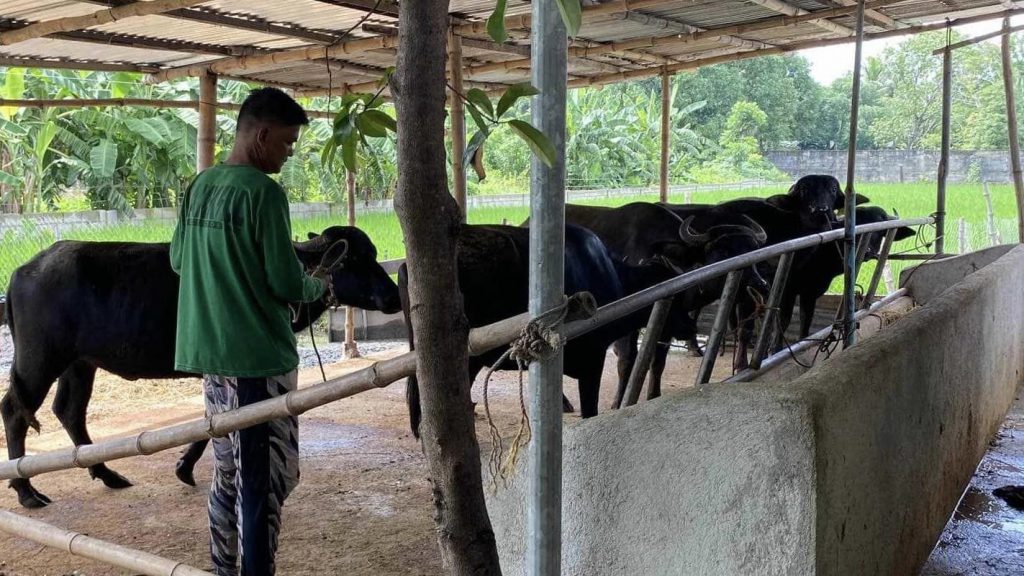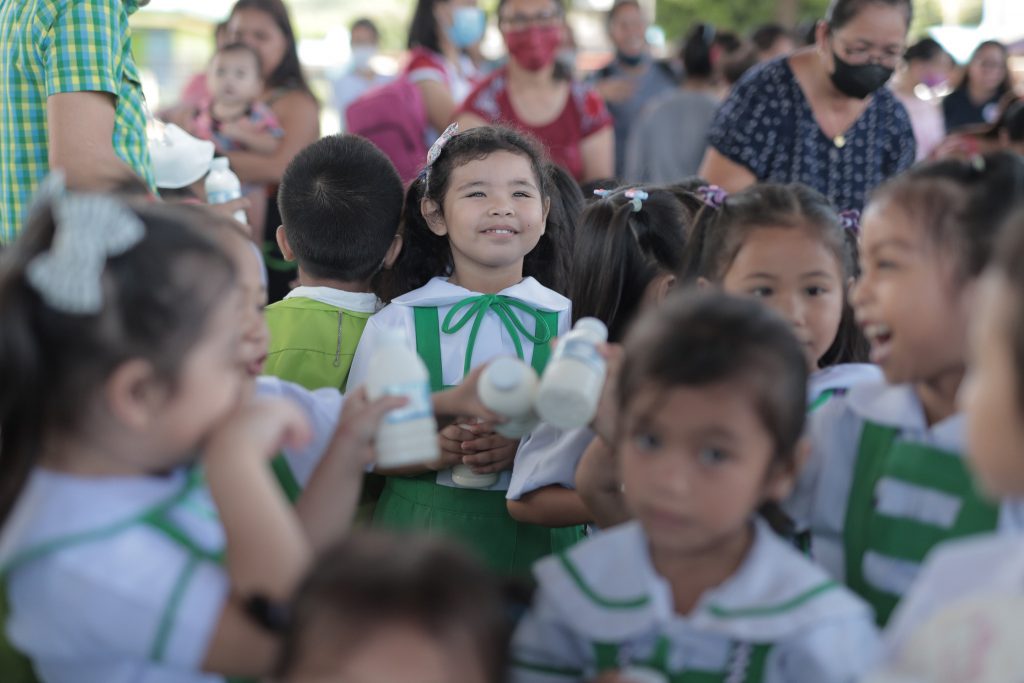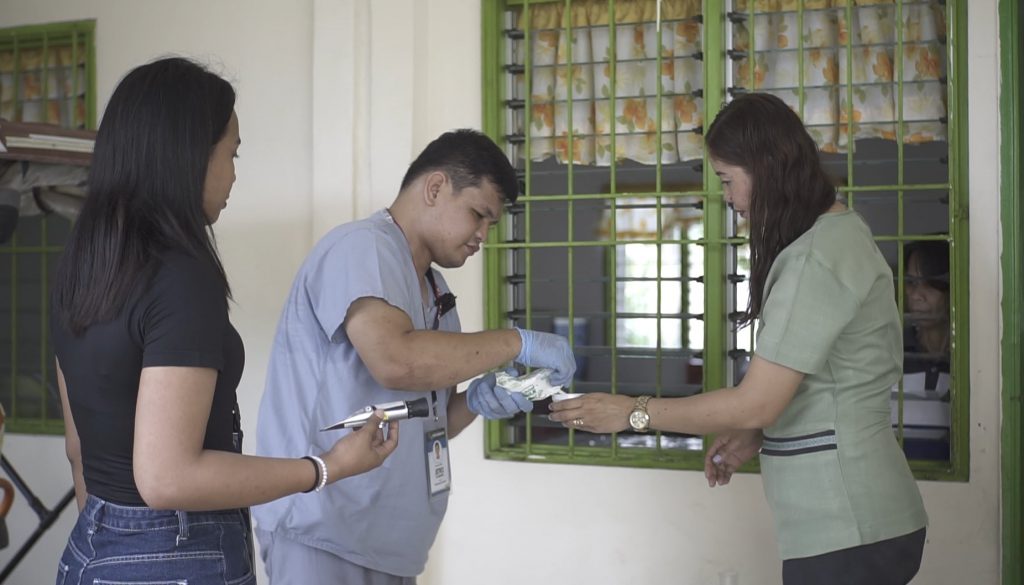The DA-Philippine Carabao Center (DA-PCC), in collaboration with its assisted farmers’ cooperatives and associations (FCAs), has made food safety a top priority to ensure that every drop of milk supplied to children across the country meets the required standards.
Based on consumer welfare and protection, the DA-PCC’s strategy focuses on enhancing carabao-based products by adhering to the requirements of regulatory agencies. These include compliance with the following standards: DA and Department of Health AO No. 2015-007, Republic Act No. 10611 (Food Safety Act of 2013), Philippine National Standard/Bureau of Agriculture and Fisheries Standards (BAFS) 36:2008 for Fresh Milk Specification, National Dairy Authority (NDA) Administrative Circular No. 04 on Dairy Safety Regulations, and Food and Drugs Administration (FDA) Circular No. 2022-012 on Revised Guidelines for the Assessment of Microbiological Quality of Processed Foods.
Along this line, the DA-PCC aggressively embarked on initiatives to fulfill the purpose through massive information dissemination and capability building for dairy carabao FCAs.
Each FCA underwent rigorous training in quality testing and food safety to empower them with the knowledge and skills necessary to maintain the safety and quality of their milk products.
Among the capability building activities the FCAs participated in included a Food Safety and Hygiene Academy of the Philippines (FoodSHAP®) accredited training for: (1) Basic Food Safety for Food Handlers (2) Hazard Analysis & Critical Control Point Principles and Practice (3) Food Safety Compliance Officer. They also participated in a series of Business Talk on Food Safety with the theme “Sa Quality Food Safety ang Priority”.
To further guarantee compliance, the DA-PCC has certified food safety compliance officers who strictly monitor the activities of these FCAs and ensure that all food safety specifications are met, from the production and handling of milk to its final distribution.
The milk supplied to the feeding program undergoes thorough inspections—from the milking process on the farm to the packaging stage to the distribution to drop-off points—to ensure that the milk provided is safe and nutritious for children. This attention to detail ensures that the feeding program not only supports the nutritional needs of children but also upholds the reputation of local dairy products and producers.
According to the terms and conditions outlined in the operating memorandum of agreement, an inspection and acceptance report, a delivery sanitation checklist, and certificates of completion, quality assurance, and analysis are issued upon the delivery of milk products. Consequently, 100% of the products accepted by the authorized inspectors have met the required standards and were approved for distribution.
In the same way, safety officers, dairy personnel, and compliance officers are consistently provided with proper training to ensure that farmers are ably assisted. They are also regularly monitored to ensure that the risk management plan is implemented and food safety regulations on safe food production and proper postharvest handling are strictly adhered to.
“The DA-PCC and FCAs work together to promptly address and resolve any operational challenges that may arise. We have 12 PCC regional centers nationwide who have very close relations with the FCAs involved in the program,” DA-PCC Executive Director Dr. Liza Battad said.
Among other interventions, the DA-PCC prepared a scalable and efficient risk management plan as a dairy safety regulation, and assisted FCAs to secure a License to Operate (LTO) from NDA.
The DA-PCC also assisted FCAs in securing accreditation to operate as a Civil Society Organization. This enables its assisted FCAs to become active partners in the LGU’s plans and programs. Currently, there are 43 CSO accredited cooperatives nationwide, 13 NDA-LTO accredited, 46 FDA-LTO accredited and are participating in the milk feeding program, and 47 PhilGEPS certified.
This widespread accreditation reflects the robust framework established by DA-PCC to ensure that cooperatives are not only compliant with food safety standards but are also well-positioned to contribute to the country’s nutrition goals. Over the years, these efforts have led to significant achievements under Republic Act No. 11037, also known as the “Masustansyang Pagkain Para Sa Batang Pilipino Act of 2018,” which aims to address hunger and malnutrition among Filipino children.
Through partnerships with the Department of Education (DepEd) and the Department of Social Welfare and Development (DSWD), DA-PCC has facilitated the delivery of fresh carabao’s milk and milk-based products to millions of children nationwide. The impact of these programs is evident in the numbers:
Since the program’s inception in 2019, the number of participating FCAs has grown from 30 to 45 under the DepEd School-Based Feeding Program (SBFP). These FCAs supplied over 112 million milk packs to 1,981,396 beneficiaries in SY 2019-2020; 3,114,948 in SY 2020-2021; 3,503,732 in SY 2021-2022; 3,446,217 in 2022-2023; and 2,054,873 in SY 2023-2024, generating a gross income of PHP2.2 billion. Similarly, under the DSWD Supplementary Feeding Program, the number of active FCAs increased from 8 to 28, delivering over 25 million milk packs to 177,180 beneficiaries during the 10th cycle; 240,502 during the 11th cycle; 283,254 during the 12th cycle; and 157,968 during the 13th cycle, with a gross income of PHP500 million.
These figures highlight not only the program’s success in improving child nutrition but also its role in creating a sustainable market for dairy cooperatives. The total revenue generated through these feeding programs amounts to PHP2.7 billion—a significant boost to the livelihoods of small-holder farmers and a testament to the program’s impact in rural communities.
The milk feeding program has also created more than 130,000 jobs, including roles in family enterprises, multiplier farms, milk collection, and other segments in the dairy value chain.
Over the years, the FCAs involved have benefited from a stable market, leading to improved livelihood opportunities for local dairy farmers, their communities, and the broader industry. The increased income has enabled FCAs to invest in the expansion of their processing facilities, the procurement of raw materials for pasteurized milk production, the purchase of packaging and labeling materials, and the acquisition of vehicles for logistics—a manifestation of their committed participation in the program.
The DA-PCC was also able to embark on the establishment of milk laboratories within its 12 regional centers nationwide within the year, offering cooperative members access to milk quality testing services. These initiatives are made possible through a locally funded project spearheaded by Senator Cynthia Villar, chairperson of the Senate Committee on Agriculture, Food, and Agrarian Reform.

